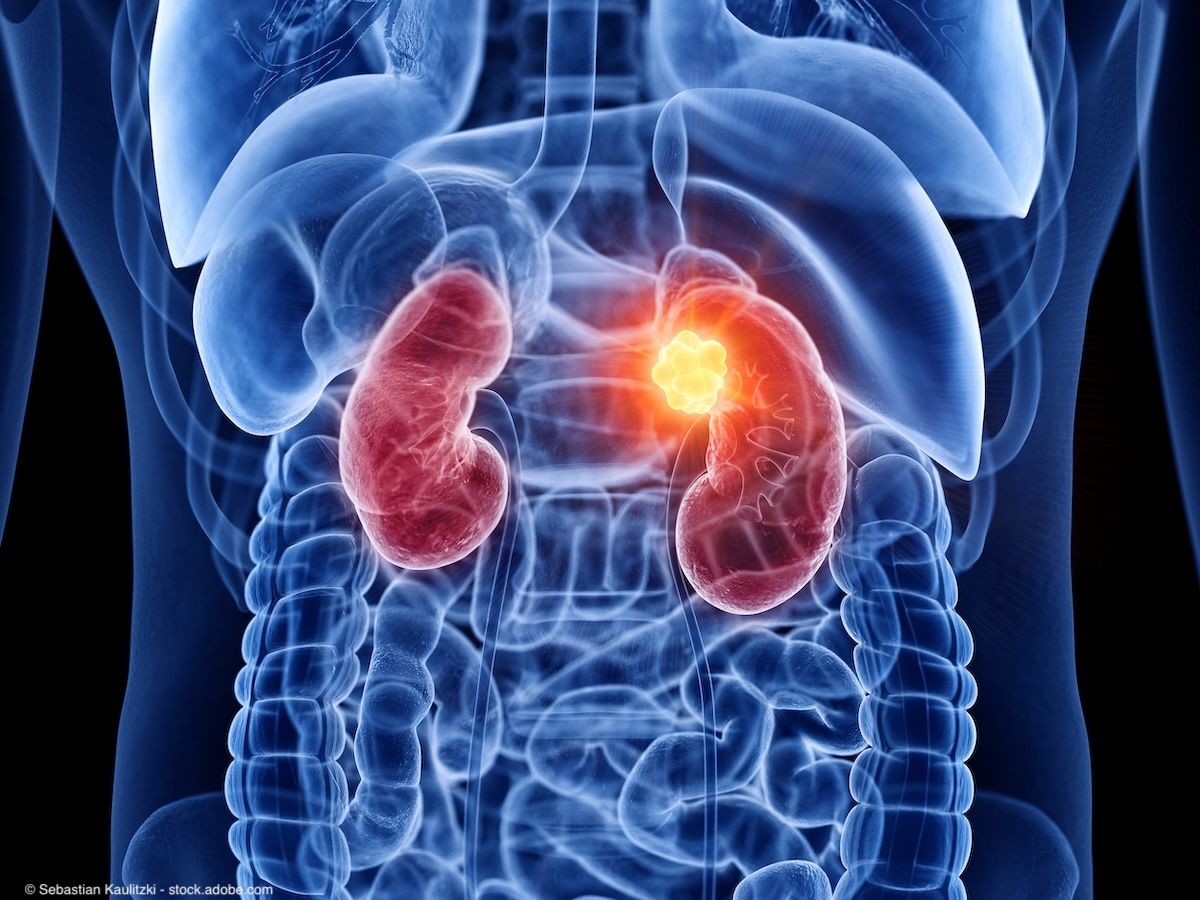News
Article
Pazopanib plus bevacizumab shows promising phase 2 efficacy in ccRCC
Author(s):
"The encouraging results suggest that alternating pazopanib with bevacizumab is a promising treatment regimen for renal cell carcinoma patients in the favorable risk group," says Saby George, MD, FACP.
Treatment with pazopanib (Votrient) alternated with treatment with bevacizumab (Avastin) demonstrated promising initial efficacy and safety in patients with treatment-naïve metastatic clear cell renal cell carcinoma (ccRCC), according to data from a phase 2 study (NCT01684397) presented at the 2024 European Society for Medical Oncology Congress in Barcelona, Spain.1
At a median follow-up of 33.1 months, the median PFS was 22.1 months.

For the trial, patients received the recommended phase 2 dose of pazopanib 800 mg daily on days 1 through 28 plus bevacizumab 10 mg/kg on days 36 and 50 of a 10-week cycle.
According to the authors, “The study was designed to detect a CBR [clinical benefit rate] of 60% vs 45% at alpha = 0.10 and power = 0.80 using a 2-stage design with n = 26+25 (51) pts.” With these criteria, a 45% 12-month CBR—defined as complete response, partial response, and stable disease—translated to a median progression-free survival (PFS) of 11.1 months. A 60% CBR translated to a median PFS of 15.7 months.
The primary end point was the 12-month CBR. Secondary end points included the objective response rate (ORR), overall survival (OS), and safety.
Overall, the authors stated that “the final efficacy rule of ≥28/51 pts having a CBR response at 12 months was met (40/51 = 0.78).”
Additionally, at a median follow-up of 33.1 months, the median PFS was 22.1 months (95% CI, 15.9-27.4). According to a news release on the findings, this PFS was more than double that seen with pazopanib alone. The news release noted, “In clinical trials that supported FDA approval of pazopanib for advanced RCC, the median PFS was 11.1 months.”2
Additional findings showed an ORR of 54.9% and a stable disease rate of 43.1%, translating to a CBR of 98%. Progressive disease occurred in 2% (n = 1) of patients. The median OS was 62.9 months (95% CI, 46-NR).
Regarding safety, the regimen was generally well-tolerated. The most common adverse events (AEs) of any grade were diarrhea (70%), hypertension (54%), fatigue (69%), and nausea (51%). The most common grade 3 or 4 AEs included hypertension (33%), ALT elevation (14%), and AST elevation (12%). Among all patients, 6 came off the trial for reasons related to study drug toxicities and 6 came off the trial for other reasons or for unrelated medical conditions. At the time of data report, 5 patients remained on trial.
In total, the multicenter trial enrolled 51 patients with previously untreated metastatic ccRCC across 5 clinical trial sites in the United States. The median age of participants was 65.6 years, and 70.6% of patients in the trial were male.
The study enrolled more patients in the IMDC favorable risk category (31 of 45 patients) due to FDA approval of immunotherapy regimens.
Presenting author Saby George, MD, FACP, professor of oncology and medicine and the Director of Network Clinical Trials at Roswell Park Cancer Center, explained in the news release, “Because immunotherapy options were available to patients in other risk groups, the phase 2 group included more patients in the favorable risk category. The encouraging results suggest that alternating pazopanib with bevacizumab is a promising treatment regimen for renal cell carcinoma patients in the favorable risk group.”2
Final completion of the study is anticipated for January 2025.3
References
1. Vaishampayan UN, Hutson A, Groman A, et al. A phase I/ II trial of pazopanib (Paz) alternating (alt) with bevacizumab (Bev) in treatment-naïve metastatic clear cell renal cell carcinoma (mccRCC) patients (pts): Phase II results. Presented at: 2024 European Society for Medical Oncology Congress. September 13-17, 2024. Barcelona, Spain. Abstract 1696P. https://s3.eu-central-1.amazonaws.com/m-anage.com.storage.esmo/static/esmo2024_abstracts/1696P.html.pdf
2. Roswell Park-designed treatment regimen doubles progression-free survival in metastatic kidney cancer. News release. Roswell Park Comprehensive Cancer Center. September 15, 2024. Accessed September 25, 2024. https://www.newswise.com/articles/roswell-park-designed-treatment-regimen-doubles-progression-free-survival-in-metastatic-kidney-cancer
3. Pazopanib hydrochloride and bevacizumab in treating patients with previously untreated metastatic kidney cancer. ClinicalTrials.gov. Last updated January 31, 2024. Accessed September 25, 2024. https://clinicaltrials.gov/study/NCT01684397
Newsletter
Stay current with the latest urology news and practice-changing insights — sign up now for the essential updates every urologist needs.
















